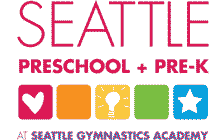Preschool Philosophy & Curriculum
At Seattle Preschool, we believe that children are capable, curious, and imaginative learners, each shaped by their own unique social and cultural experiences. Our program is grounded in the belief that learning happens best through movement, exploration, and meaningful relationships. Located within a gymnastics facility, our space offers a unique setting where daily gross motor experiences are an integral part of the learning environment. From structured games and obstacle courses to expressive movement and balance work, these activities serve as powerful tools for cognitive, emotional, and social development.
Curriculum
Our curriculum is thoughtfully structured around key components that support whole-child development. We focus on the developmental domains of physical, cognitive, social-emotional, language, and creative growth. Learning is anchored in big ideas and concepts that help children make connections between their experiences and broader understandings. Core books and stories foster literacy, empathy, and imagination, while children’s interests guide the direction and depth of each learning experience, ensuring relevance and engagement.
To document and celebrate growth, we use learning stories as a central assessment and communication tool. These narratives highlight not only developmental progress but also each child’s process of discovery, relationship-building, and meaning-making. We use this form of assessment to emphasize each child’s strengths, moving away from a deficit model to focus on what children can do, how they think, and who they are becoming. Shared regularly with families and children, learning stories promote reflection, connection, and a shared understanding of each child’s unique and evolving learning journey.
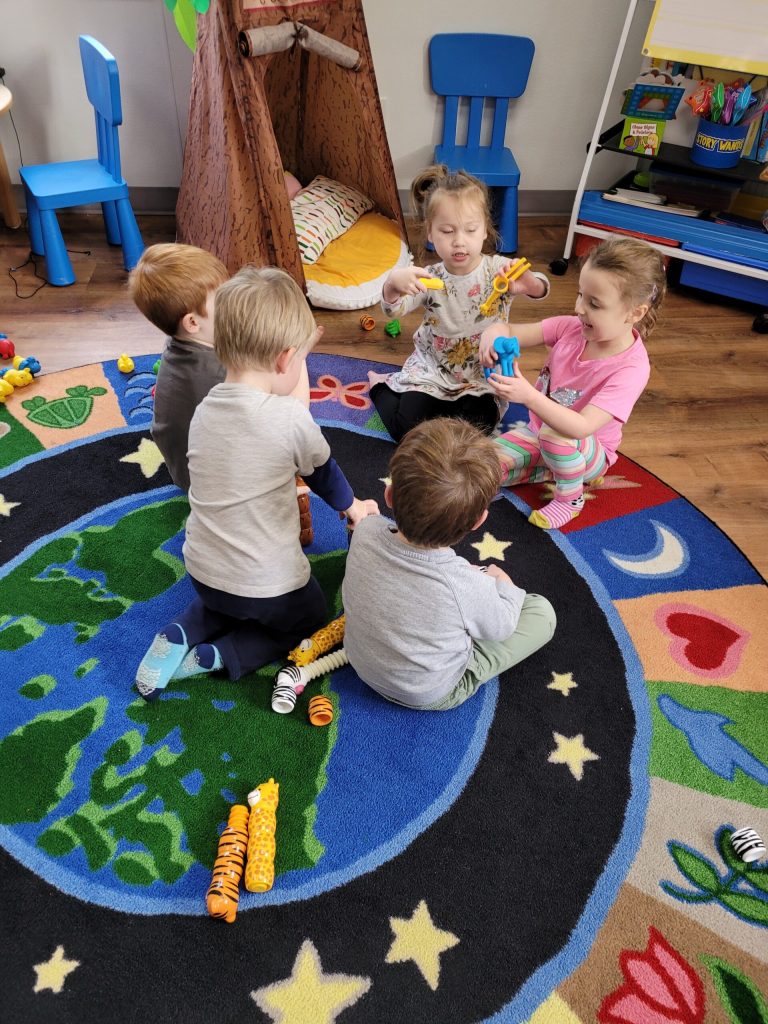
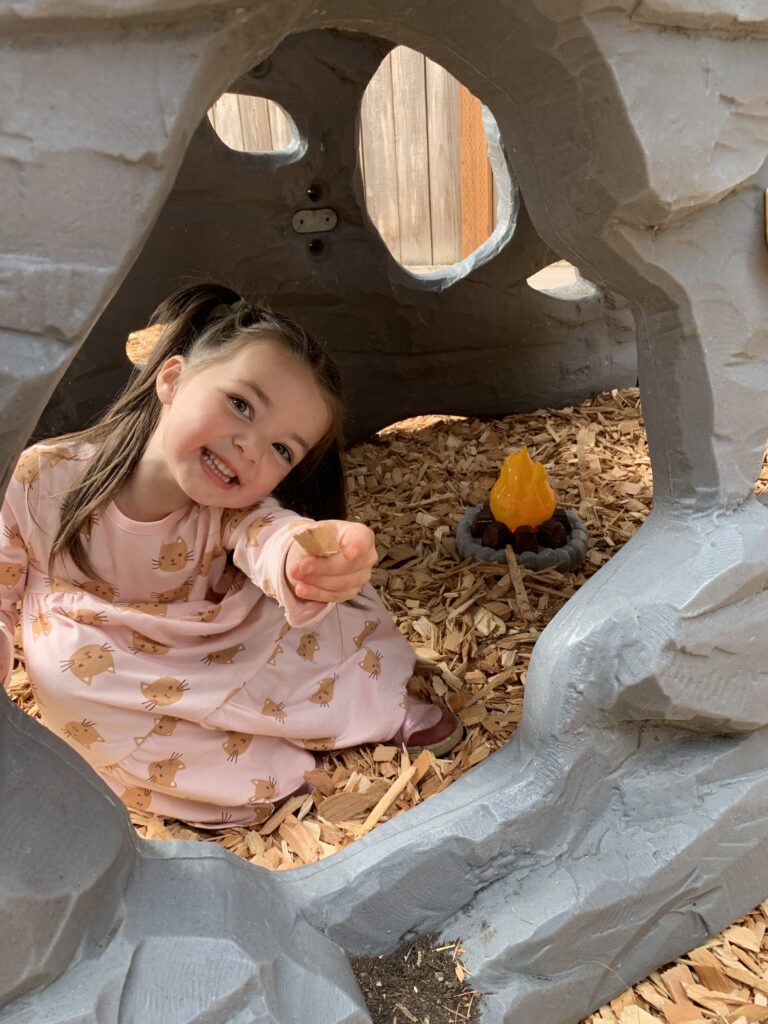
Philosophy
We draw inspiration from a variety of progressive and child-centered educational philosophies. These influences come together to help us cultivate and shape a dynamic environment. We value the creative expression and environment-as-teacher principles of Reggio Emilia, the discipline and autonomy nurtured in Montessori settings, and the deep, child-centered inquiry central to project-based learning. These approaches are all supported by our daily, intentional use of movement to reinforce core developmental domains.
We see each child as an active, capable participant in their own learning, able to make decisions, solve problems, and express themselves in diverse ways. Our role as educators is to serve as facilitators, co-learners, and guides, observing closely, listening deeply, and responding thoughtfully to each child’s interests and needs. Much of our day supports children in developing autonomy, social-emotional awareness, and the confidence to express their needs and ideas within a group. We also emphasize responsibility and accountability, helping children take ownership of their actions and contribute meaningfully to a respectful, reliable classroom community.
Gymnastics Time
Our program emphasizes a comprehensive approach that supports child development from all angles; physically, socially, emotionally and academically. This includes taking advantage of our most unique and valuable asset – access to our gym space, with daily exercise and creative movement.
While on the gym floor we strive to develop gross motor skills, coordination, body control, self-awareness, trust and confidence. We use positive encouragement, progressive teaching and age-appropriate equipment to teach basic gymnastics skills, cooperative games, sports, dance and rhythm while instilling a lifelong enjoyment of being active, while allowing a quieter mind at learning time. Learn more about how daily gymnastics movements benefits our preschoolers.
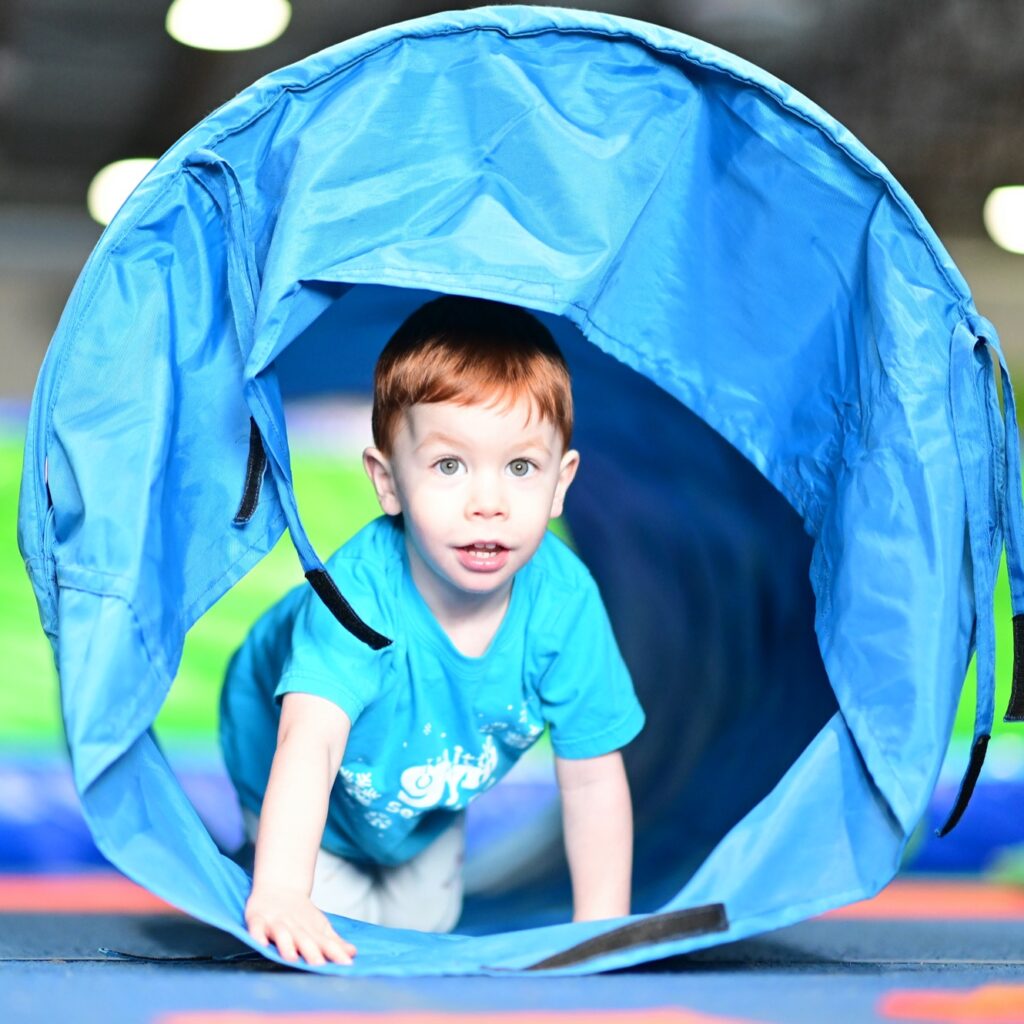
We also follow complimentary curriculums from respected organizations:
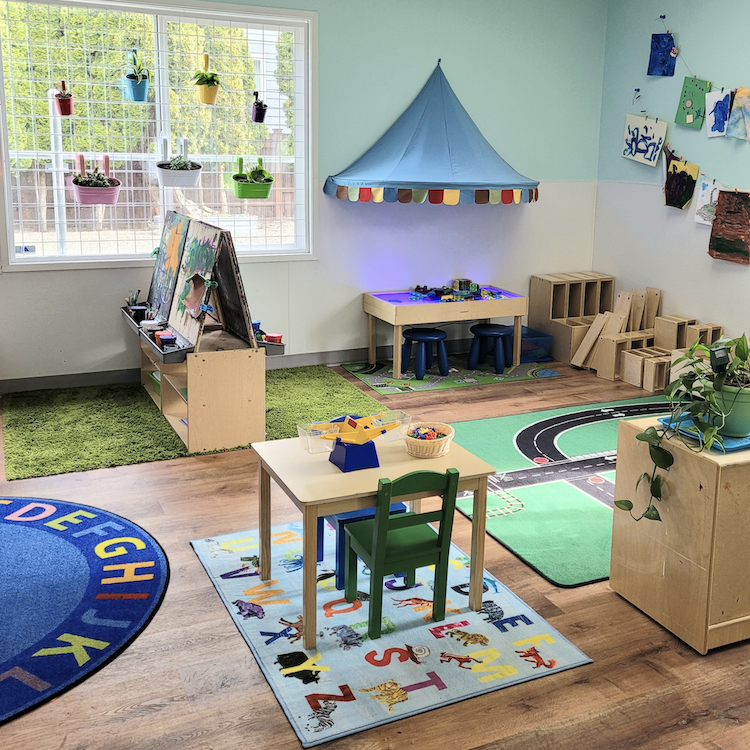
Second Step
A social-emotional curriculum that helps little learners harness their energy and potential by teaching them to listen, pay attention, control their behavior, and get along with others. When students enter kindergarten with the self-regulation and social-emotional skills taught in the research-based Second Step program, they’re set up for success.
Second Step ➔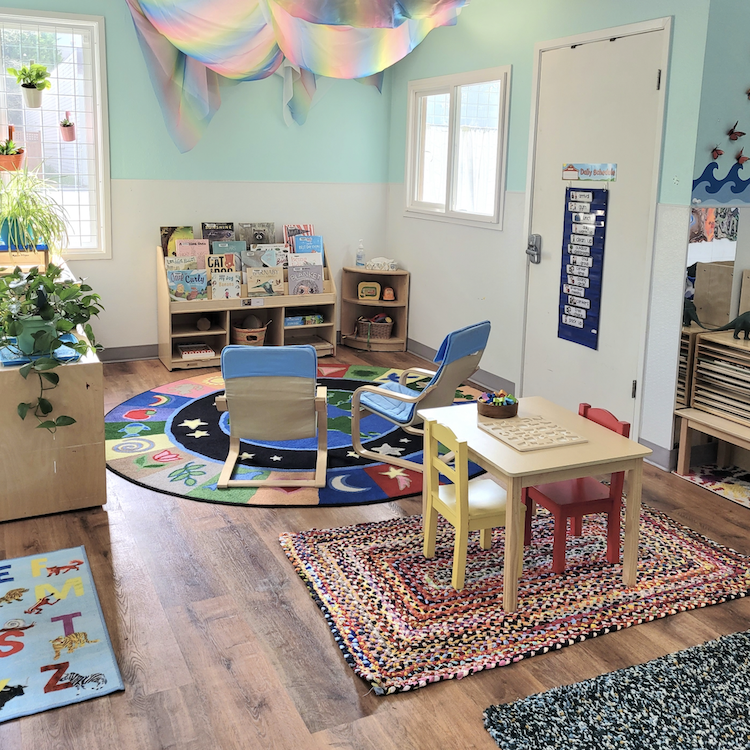
Growing up WILD
Growing Up WILD is an early childhood education program that builds on children’s sense of wonder about nature and invites them to explore wildlife and the world around them. Through a wide range of activities and experiences, Growing Up WILD provides an early foundation for developing positive impressions about the natural world and lifelong social and academic skills.
Growing up WILD ➔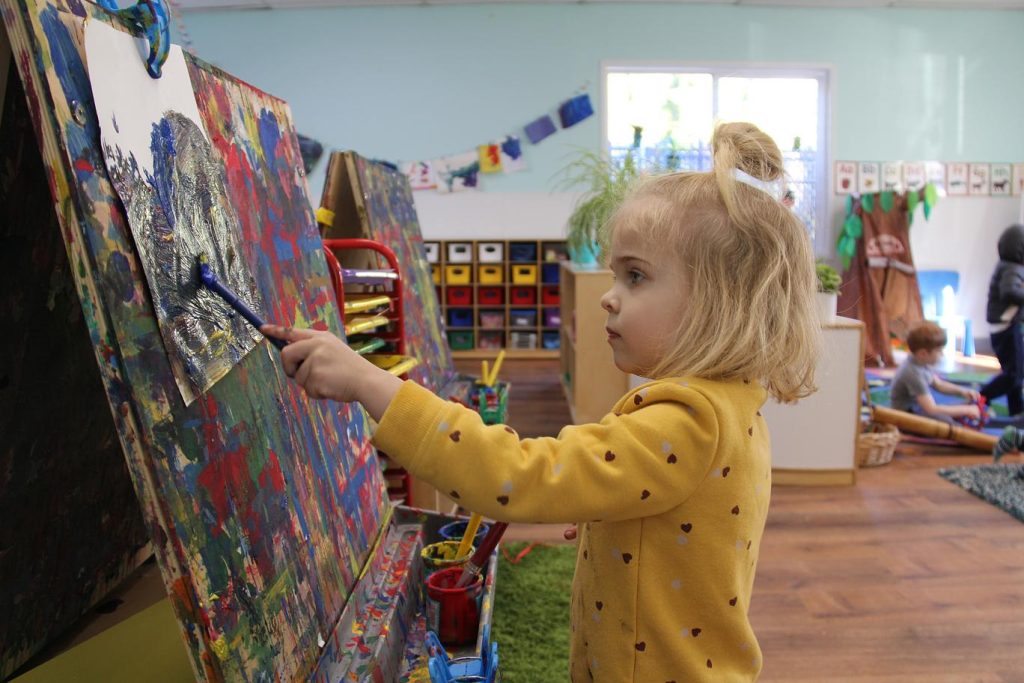
Handwriting Without Tears
Handwriting is one of the foundational skills that leads students toward automatic word recognition. As students form letters, they are solidifying the alphabetic principle. They need to be able to retrieve the symbol for the sound automatically, so as students practice in Handwriting Without Tears (HWT), they are learning to transfer that knowledge.
Handwriting Without Tears ➔